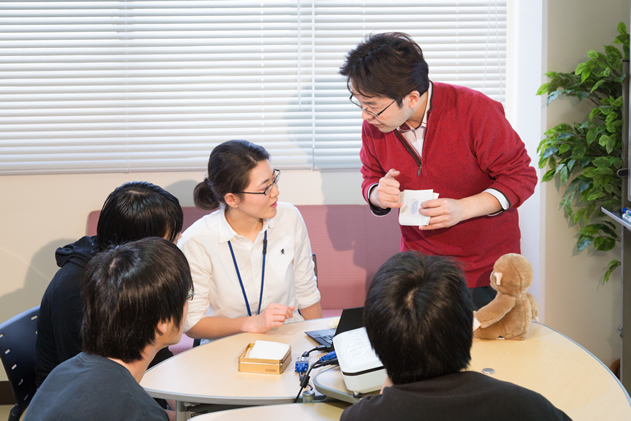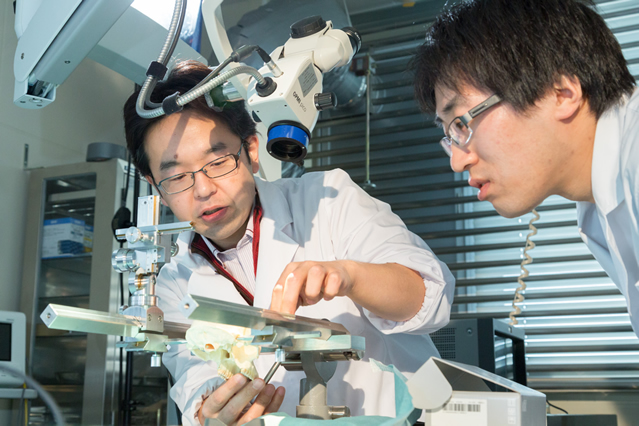Curriculum
Multidisciplinary Curriculum
Our school has already structured and implemented a systematic curriculum to foster an understanding of basic technology as well as all-around interdisciplinary study capabilities through educational research activities such as our 21st Century Center of Excellence (COE) and Global COE.
The curriculum aims to provide the necessary education for a global human resource in advanced interdisciplinary fields, by systematically embedding “Internship in Doctoral Program” beyond his/her own major/expertise, as well as utilizing multiple lectures and laboratory rotation.
Furthermore, we reinforce our Electronics-Inspired Interdisciplinary Technology Education method for advanced interdisciplinary education in five fields: genome function analysis, biosensing, nanophotonics, high-performance simulation, and brain information decoding. The curriculum is systematically organized.


| Abilities to acquire | Knowledge and skills to develop | Degree program content & environment |
|---|---|---|
|
|
Introduction to Brain Information Technology, Life Science and Chemistry, Brain Science Internship, Advanced Brain Science and Technology, Advanced Interdisciplinary Technology |
|
|
R&D management for Interdisciplinary Research, Seminar on Interdisciplinary Research, Internship in Doctoral Program |
|
|
Large-scale Brain-Information Technology |
|
|
English in Scientific Communication,
|
|
|
Excellent Leader for Technology Development, Special Topics in Batonzone, A Super Leader Tutorial “Talk with the Top," Group Educators |
The following outlines each subject group.
“Brain Science” subject group: Students study basic knowledge of genome science, life science, nerve science, and cognitive science. We create an adequate curriculum for each student by selecting from among many program options and through consultation with advisory faculty, external faculty, and the student. Subjects to be offered include Introduction to Brain Information Technology, etc.
“Information Technology Electronics” subject group: This group was established for learning methods for applying and developing advanced information technology to problem-solving in brain science. Such technology includes genome decoding, sensing technology, nanophotonics, brain information decoding, and virtual brain simulation, etc. Members of the internal and external staff cooperate and consult with advisory faculty, and instruct the student to create the appropriate program according to the student’s career goal. Examples include Advanced Brain Science and Technology, etc.
“Ultra-Large-Scale Neural Information Processing Technology” subject group: This group was established for students to become fluent in information technology, which is an essential skill for handling information from a variety of ultra-large-scale large-capacity neural information networks. We create an appropriate curriculum for each student by selecting from among many program options and through consultation with advisory faculty, external faculty, and the student. Subjects include Large-scale Brain-Information Technology, etc.
“Global Human Resource Training” subject group: This subject group was established to develop the leadership and communication skills (international sensibility and language skills) that are important for Integrated Field research.
- English in Scientific Communication: fostering English presentation skills.
- Internet Debate: development of debating skills through debates with foreign group educators using a long-distance TV conference system.
- Global Summer School: We dispatch students during the summer vacation of the first half of the doctoral program to experience and acquire discussion skills with an international perspective and in a global environment.